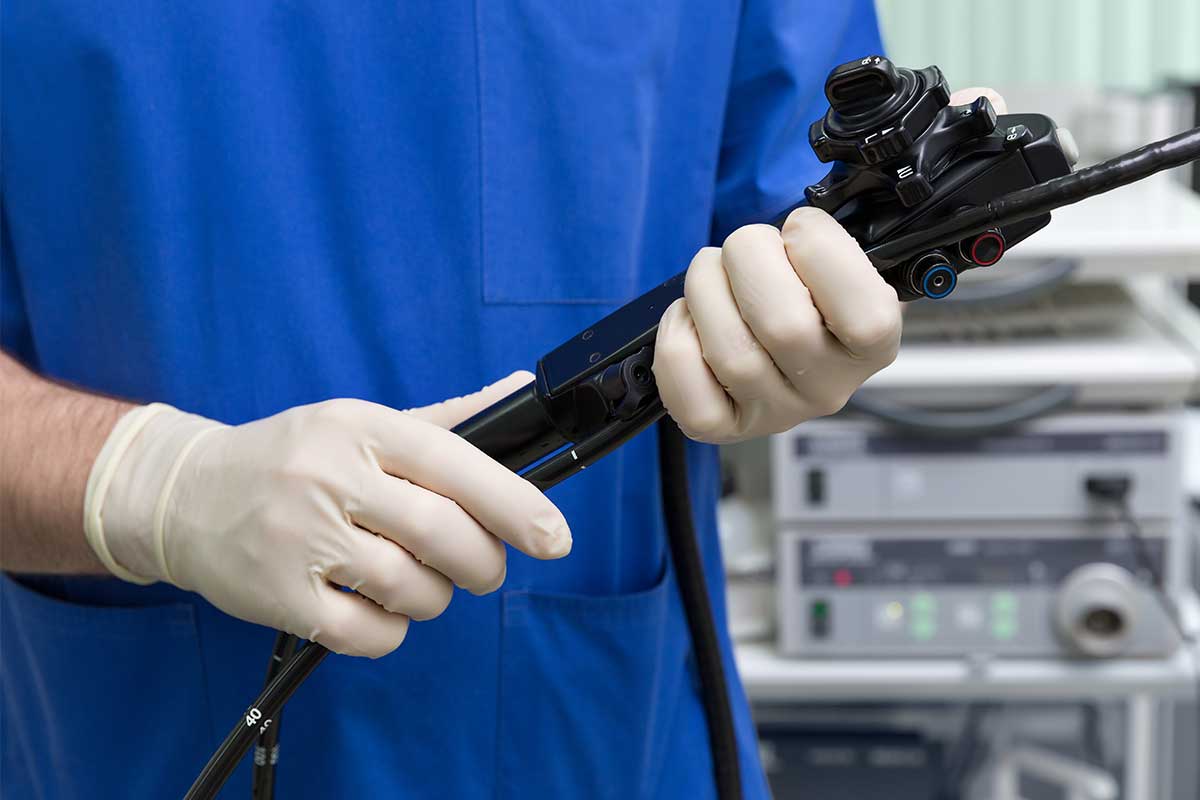
03
May
When is a Colonoscopy Needed?

A colonoscopy is an invasive test that doctors request for a variety of reasons. It is used to examine the entire colon, including the last few centimeters of the small intestine. During this procedure, medical personnel can diagnose various conditions, such as the presence of polyps, tumors, and cancer, or, in some cases, determine that no special or malignant conditions are present in the patient being examined.
Depending on the results or findings, the medical personnel will inform the patient how often or when the procedure should be repeated. For example, it’s not the same to detect a small polyp that has been successfully removed as it is to find ten polyps, or one polyp that has advanced significantly.
It can be said that the recommended age for this procedure in patients is 50 years old. However, if the patient has a family history of risk related to polyps, colorectal cancer, or genetic predisposition, then it is advisable to undergo an early-detection colonoscopy before the age of 50.
Risk Factors
There are several risk factors that can increase the need for a colonoscopy. One of the most significant risk factors is age, with individuals over 50 years old being at higher risk of developing colon cancer. Additionally, individuals with a family history of colon cancer or polyps are also at an increased risk, as are those with a history of inflammatory bowel disease, such as Crohn’s disease or ulcerative colitis. Other risk factors include a diet high in red meat, alcohol consumption, smoking, and being overweight or obese.
It’s important to note that the presence of one or more of these risk factors doesn’t necessarily mean that an individual will develop colon cancer. However, it does mean that they should consider undergoing a colonoscopy to detect any potential abnormalities early on, which can increase the chances of successful treatment.
If you have any concerns about your risk of colon cancer or have symptoms such as persistent abdominal pain, blood in your stool, or changes in bowel habits, you should speak with your doctor as soon as possible to discuss the need for a colonoscopy or other diagnostic tests. Remember, early detection is key when it comes to colon cancer, so don’t hesitate to take action if you feel that you may be at risk.
Preparing for a Colonoscopy: Tips and Guidelines
An essential element in assuring the accuracy and success of a colonoscopy is preparation. It’s essential to follow the preparation guidelines carefully, which typically involves a period of fasting and cleansing to ensure that the colon is completely empty. Your doctor will provide you with specific instructions on what you should eat and drink leading up to the procedure, as well as any medications that you may need to stop taking beforehand. It’s crucial to follow these guidelines closely to avoid any complications during the colonoscopy.
One of the most important aspects of preparing for a colonoscopy is the bowel prep. This typically involves drinking a large volume of liquid that contains a laxative to help flush out the colon. It’s crucial to follow the bowel prep instructions precisely, as any remaining stool in the colon can make it difficult for the doctor to see any abnormalities during the procedure. Patients should be prepared for frequent bowel movements during the bowel prep, as well as some abdominal cramping and discomfort.
Another essential aspect of preparing for a colonoscopy is arranging for transportation to and from the procedure. Patients will be sedated during the colonoscopy, and it’s not safe to drive or operate heavy machinery for several hours afterward. It’s important to make sure that you have a friend or family member who can drive you to and from the appointment and stay with you until the sedation wears off.
In addition to the above, patients should wear comfortable, loose-fitting clothing to the appointment and plan to arrive early to allow time for check-in and any necessary paperwork. It’s also essential to inform your doctor of any allergies or medical conditions that you have before the procedure, as well as any medications or supplements that you’re currently taking. By following these tips and guidelines, you can help ensure that your colonoscopy is successful and accurate, giving you the best chance of early detection and successful treatment if needed.
In conclusion, undergoing a colonoscopy is an essential step in preventing and detecting colon cancer. By following the preparation guidelines carefully and informing your doctor of any risk factors or concerns, you can help ensure that the procedure is successful and accurate. If you’re in need of gastroenterology services in New York, including colonoscopy, we invite you to visit the website of Triborough GI.
Our experienced and knowledgeable team of gastroenterologists is dedicated to providing the highest quality care to our patients. With state-of-the-art facilities and advanced technology, we’re committed to delivering accurate diagnoses and effective treatments.
Don’t hesitate to contact us today to schedule an appointment and take control of your digestive health. Click the link below to visit our website and learn more about our services.

